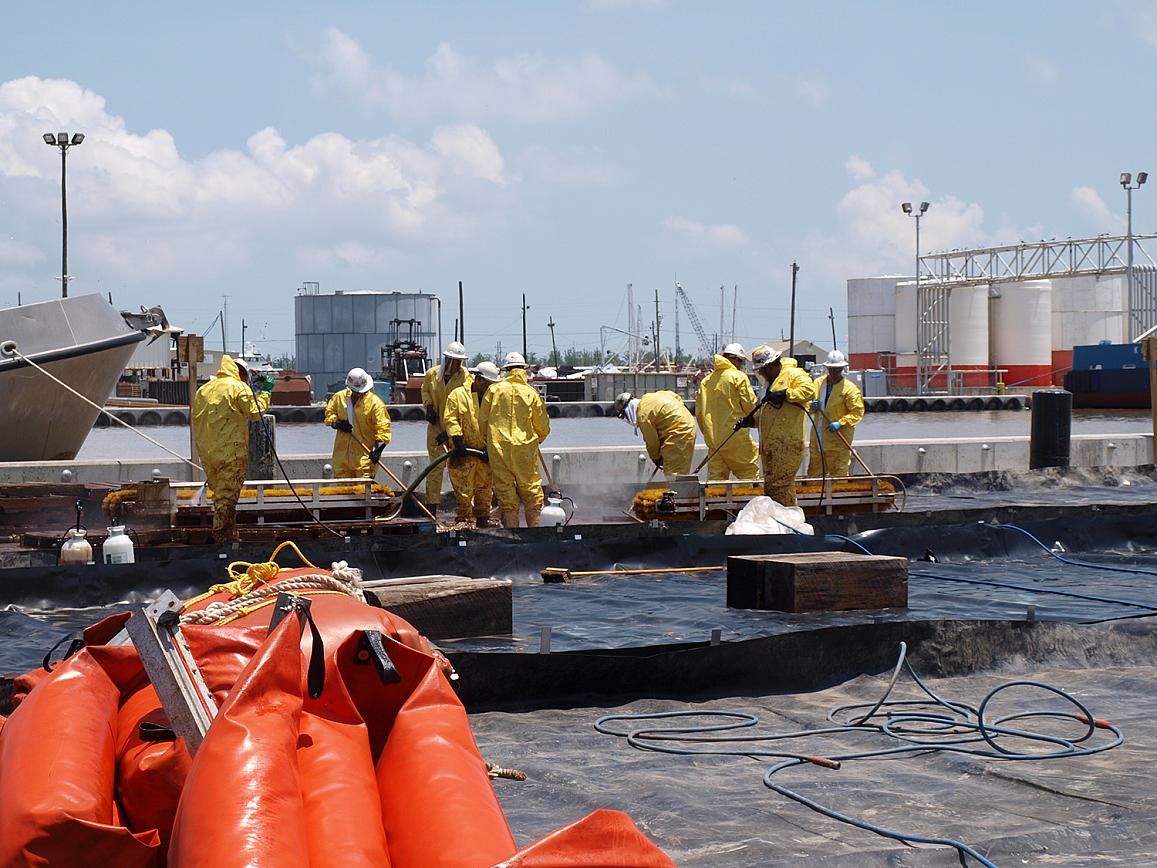Gulf spill oil dispersants associated with health symptoms in cleanup workers
Workers who were likely exposed to dispersants while cleaning up the 2010 Deepwater Horizon oil spill experienced a range of health symptoms including cough and wheeze, and skin and eye irritation, according to scientists at the National Institutes of Health (NIH). The study appeared online Sept. 15 in Environmental Health Perspectives and is the first research to examine dispersant-related health symptoms in humans.
Oil dispersants are a blend of chemical compounds used to break down oil slicks into smaller drops of oil, making them easily degraded by natural processes or diluted by large volumes of water. The study estimated the likelihood of exposure to dispersants, based on the types of jobs the workers did and where. Individuals who handled dispersants, worked near where dispersants were being applied, or had contact with dispersant equipment reported the symptoms they experienced during oil spill cleanup as part of the Gulf Long-term Follow-up (GuLF) STUDY.
Dale Sandler, Ph.D., the lead GuLF STUDY researcher at the National Institute of Environmental Health Sciences (NIEHS), part of NIH, said the findings only apply to workers involved in the cleanup effort and not the general public.

In May 2010, cleanup workers in Venice, Louisiana, pressure washed oil booms to remove oil, debris, and dispersants.
This page was last updated on Friday, January 21, 2022